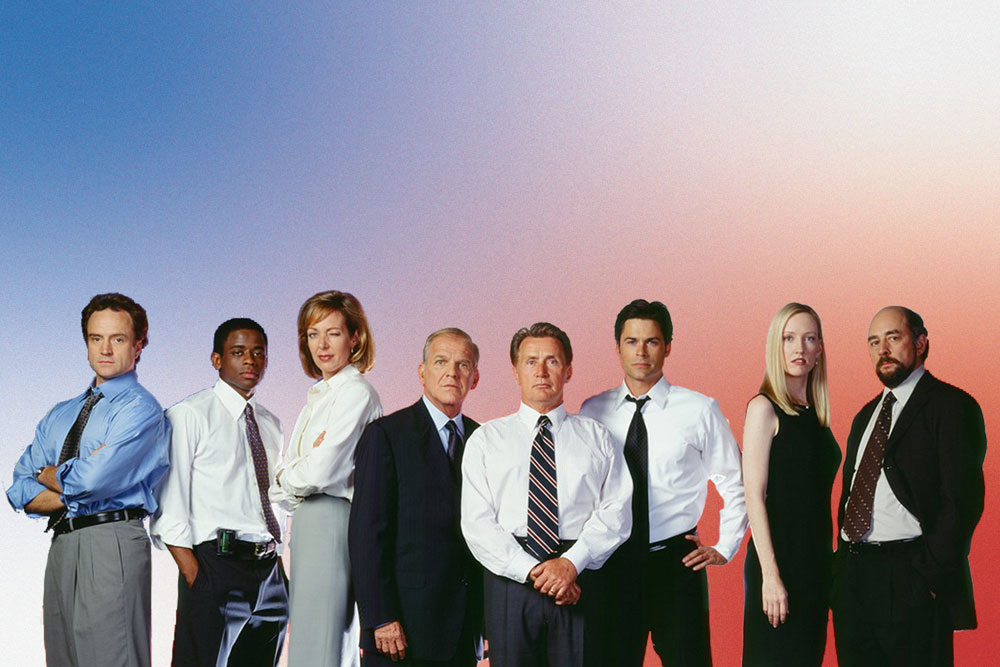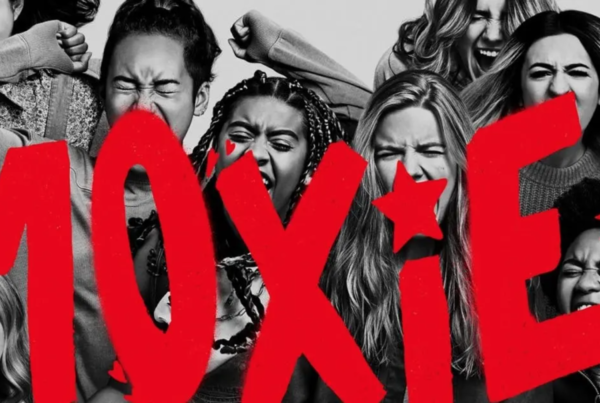“The West Wing” Retrospective: How TV Can Incite Engagement in Politics in Unexpected Ways
Since the coronavirus pandemic hit the U.S. in March, we have seen unprecedented change in our country, from the national lockdown, to the Black Lives Matter movement, to the latest presidential election, and all that has come in their wake.
To find comfort, stability, and at least a spec of sanity, we turn to art in all its forms. But, isn’t it ironic that the show I have found so much comfort in is The West Wing?
The West Wing is a seven season political drama, running from 1999-2006, based in the White House of fictional democratic President Josiah “Jed” Bartlet. It follows the White House Senior Staff and the president as they navigate eight years in office and the ups and downs of both politics and their personal lives. Damn, is it juicy.
Escaping into a fictional political drama when reality already provides one? But why, Claire, when you could be streaming Breaking Bad or New Girl?
As backwards as it may seem, allowing myself to get attached to a fake presidency has given me a platform to learn about political issues without the frightful immediacy that accompanies watching the real one.
Fictional political television holds a platform of engagement and intrigue different from the politics of reality simply because it is fictional. One can get completely lost in Press Secretary C.J. Cregg and White House reporter Danny Concanon’s relationship while simultaneously learning about the technicalities of foriegn affairs and how the White House decides what to tell the American people about and when to do so.
Perhaps one of show’s most poignant plot points comes in the season four finale “Twenty Five” when (spoiler alert) President Bartlet’s daughter Zoey gets kidnapped. He invokes the 25th Amendment, which states in Section I, “In case of the removal of the President from office or of his death or resignation, the Vice President shall become President.”
President Bartlet feels that he cannot make rational decisions with the security of America as his top priority while his daughter’s life is on the line, so he decides to temporarily resign and hand his office over. However, in classic Sorkin style, it is more complicated than the Vice President stepping up, as previous episodes have the VP John Hoynes resign due to a sex scandal. So, who comes next? None but the Speaker of the House, Republican Glen Allan Walken, as played by John Goodman.
Today, a Democrat peacefully handing over his office to a Republican is something many Americans could not fathom (myself included), as bipartisan politics grip our country. Watching this episode and seeing President Bartlet choose to put the good of America over his own political interests, even over his own party, was awe-inspiring. I know it is a fictional TV show, but c’mon, I’m only human.
I’m sure I don’t speak for only myself when I say I crave a politician who puts our country and its people first, over party politics and personal interest, and does so in a way that sets a shining example for all future leaders.
While the show does its fair share of preaching, and it is based in Democratic office, so it often favors the blue, it does another extremely important job. It not only shows opposing viewpoints, but also how Democrats and Republicans can share a common goal.
Season two introduces Associate White House Counsel Ainsley Hayes, a very vocal Republican, as played by Emily Procter. She happens to be one of the most dynamic characters on the show, as she works in a White House that disagrees with her on almost every issue. Yet, she accepts the job and performs her duties well, as her ultimate goal is to serve her country and its president.
In season two episode “And It’s Surely to Their Credit,” Ainsley is asked why she would accept a position at the democratic White House. She answers simply, “I feel a sense of duty.”
If The West Wing is nothing else, it is idealistic. This is actually one of the show’s most often critiqued aspects, as it is not realistic to be idealistic all the time.
But, must idealism always go hand in hand with disillusion? Can’t idealism simply be what it is, an image of a dream, a concept that is so crazy it just might work? I can think of plenty of times where idealism has saved me from falling into a cynical well, 2020 being the most recent example. With Biden and Harris soon taking over the real West Wing, a healthy dose of idealism seems to be surging around us, creating a positivity and excitement that a lot of us haven’t felt in four years.
At the end of “Twenty Five,” Zoey is found and saved, and Speaker Walken signs the office back over to President Bartlet in a show of complete respect and dignity. The West Wing not only shows us what could be, but it shows examples of truly compassionate, empathetic, and smart characters.
This year has seen one of the highest voter turnouts of any election in 120 years, with about 160 million people casting their votes. In 2016, that number was just 139 million.
You don’t have to watch The West Wing to grasp what I interpret as its ultimate message: “decisions are made by those who show up.”

-Claire Beaver, Content Creator






